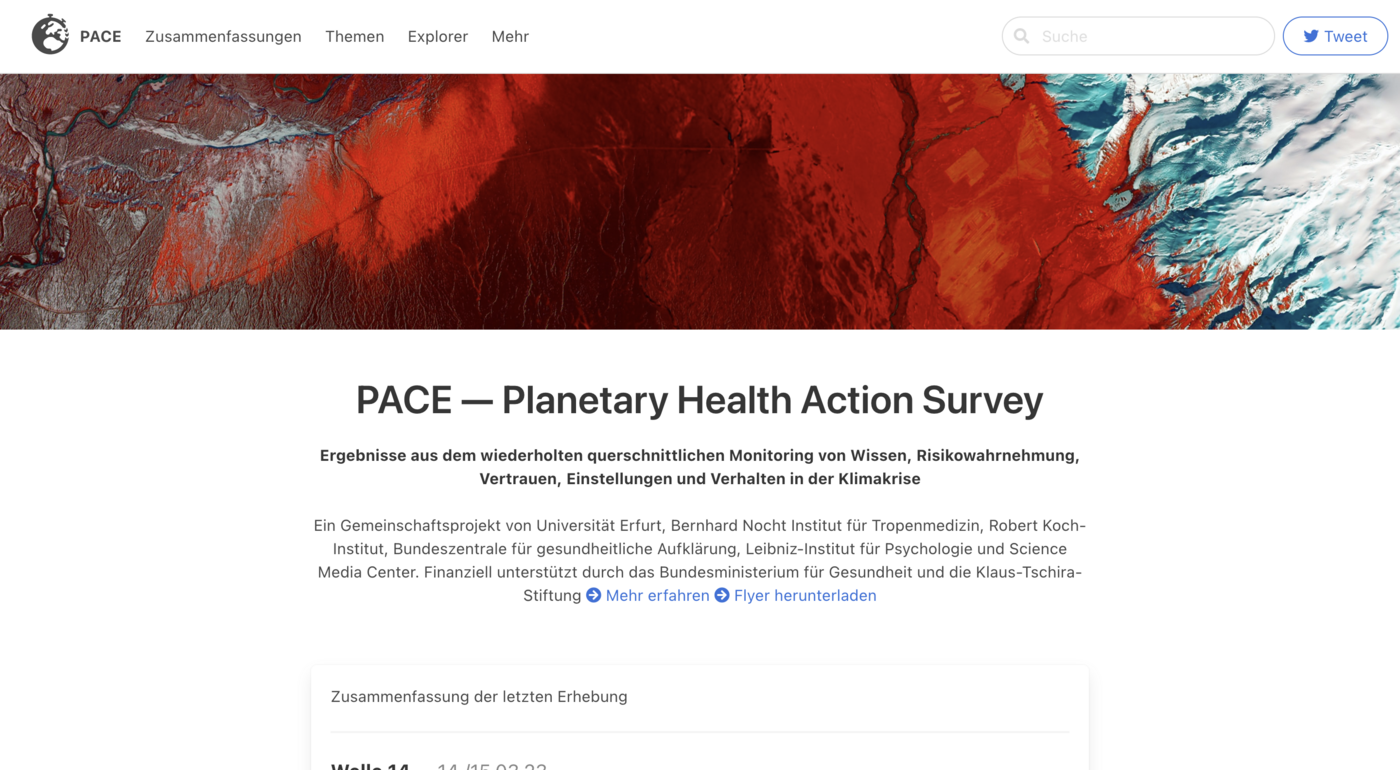Our research
Antimicrobial resistance (AMR)
Antimicrobial resistance (AMR) is among the biggest threats to global health. Despite growing efforts to tackle this problem, global antibiotic overuse fosters the development of AMR. Behavioral insights from psychological studies help to understand and possibly change problematic use and prescription behavior, but measurement instruments to capture related constructs that adhere to psychometric quality standards are missing. With this project, we aim at filling this information gap by developing psychological measures to assess AMR-related knowledge, attitudes, and decision making that overcome psychometric limitations of earlier instruments. The new measures will allow the assessment of individual factors related to AMR, will be published as open source material, and can be used in a wide range of contexts both in research and practice across countries. Furthermore, when the new measurement instruments are available, we will employ them to investigate causes and effects of antibiotics overuse and test interventions to counter this problem, in both the global north and the global south.
- Duration: 04/2022 - 2025
- Team: Dr. Mattis Geiger, Dr. Lars Korn, Elisabeth Sievert
- In collaboration with: Prof. Dr. Robert Böhm (University of Vienna), Prof. Dr. Oliver Wilhelm (Ulm University), and Dr. Denise Dekker (Bernhard Nocht Institute for Tropical Medicine).
Replication of interventions
Behavioral insights have been recognized as being key for successful and cost-effective interventions. Recent movements in disciplines that produce behavioral insights – such as psychology and economics – have unmasked that oftentimes findings fail to replicate in other labs. Little is known about the effects in the field. This project aims to conduct replications of interventions on health-related topics (e.g. vaccine hesitancy, hand hygiene) across different settings to elucidate potential moderating sociocultural effects. Additionally, it aims to incentivise and support researchers in non-WEIRD settings to replicate the findings in their settings. With these potential insights and data, better targeted health research and interventions could be designed.
- Duration: 01/2022 - 2025
- Team: Dr. Lars Korn, Dr. Mattis Geiger, Dr. Parichehr Shamsrizi, Elisabeth Sievert, Christopher Jäger
- In cooperation with: Dr. Frank Renkewitz, Lukas Beinhauer
Planetary Health Action Suvey (PACE)

Climate change is ranked by scientists worldwide as the greatest global threat to human health. Nevertheless, so far, action has been taken too hesitantly to preserve our livelihoods. The PACE (Planetary Health Action Survey) project develops strategies and methods to improve climate communication and to design climate protection measures in such a way that they are accepted and supported by the public. The aim of the project is to create a basis for climate protection at the political and social level - and thus to accelerate it.
Repeated online surveys contribute to a better understanding of the factors influencing climate protection-related attitudes and behavior. The willingness to take action against climate change is linked to psychological and health-related aspects.
- Duration: 06/2022 - 12/2024
- Team: Dr. Cornelia Betsch, Dr. Philipp Sprengholz, Dr. Sarah Eitze, Dr. Mattis Geiger, Dr. Mirjam Jenny, Dr. Lars Korn, Dr. Parichehr Shamsrizi, Lena Lehrer, Hellen Temme
- Further information: PACE (project website)
Health Games
Overcoming the social dilemma in vaccination decisions and the consumption of antibiotics

Scientific approaches often describe preventive and curative health decisions as individual decision-making tasks, where individuals weigh their own costs and benefits. However, some health decisions do not only affect the individual decision-maker, but also have direct or indirect effects on others.
The classical perspective ignores potential positive or negative effects on others (externalities) as mechanisms and potential incentives in health decisions. Vaccinations, for instance, often have positive externalities because every vaccination reduces the transmission of a disease and thus indirectly protects unvaccinated individuals. Antibiotic use, in contrast, is an example for negative externalities, because excessive and inappropriate use leads to drug resistance and can harm uninvolved others if antibiotics are no longer effective. As a result, health decisions become social interactions when the decisions of several individuals and their health consequences influence each other, and individual interests have to be weighed up against collective interests.
In a preceding project we systematically analyzed vaccination decisions as social interactions at the behavioral level. The three work packages of this follow-up project directly build upon the established research method of analyzing social-interactive health decisions through interactive decision tasks (Health Games). It has been repeatedly shown that interventions stressing prosocial aspects of vaccinations are helpful in increasing the willingness to vaccinate. Work package WP1 therefore critically examines this finding with regard to mediators as well as facilitating and attenuating moderators.
Furthermore, previous studies showed that integrating vaccine effectiveness into the vaccination decision leads to a cognitive bias ("Vaccine Effectiveness Fallacy"). When vaccines are less effective, individuals are less willing to vaccinate. Theoretical models, however, suggest that this is incorrect from a normative perspective since with decreasing effectiveness the indirect protection also decreases. Therefore, WP2 identifies and evaluates different debiasing strategies.
WP3 applies our research approach to antibiotic use in order to examine its determinants. These insights will facilitate the future development of strategies to reduce excessive and inappropriate antibiotic use. For this purpose, we developed a novel interactive decision task that models the social-interactive mechanisms in the development of antibiotic resistance.
Based on these interdisciplinary research methods, this project extends theoretical models of health decision dilemmas, taking into account that behavioral predictions can vary depending on whether externalities of the individual decision are considered or not. The results of this project will increase our understanding and the development of evidence-based interventions to overcome vaccine hesitancy and antibiotic overuse.
Team: Dr. Lars Korn, Elisabeth Sievert
In collaboration with Prof. Dr. Robert Böhm, University of Vienna.
See also website DFG Gepris Database
Other projects
Find other projects led by Cornelia Betsch and her University of Erfurt team here.







